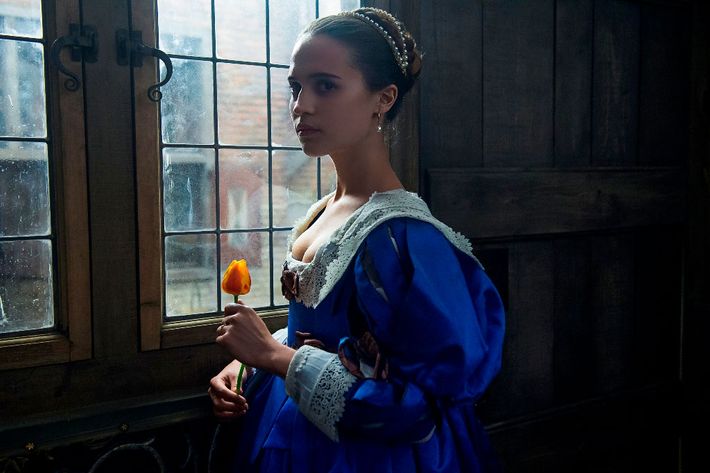
They’re almost here. The Academy Awards. The culmination of months, often years, of arduous production and meticulously crafted marketing strategy, with an eye on an Oscar statue. This year, 37 feature films received Oscar nominations, with 8 of them up for Best Picture. But that’s nothing compared to the dozens of movies that began the year with Oscar ambitions. Every year, the Oscar hopefuls line themselves up, all important subject matter and pedigreed directors and actors whose time for the Oscar spotlight has come. But only a fraction of those hopefuls will be lucky enough to be nominated.
Is it “luck,” though? Oscar purists (and this year’s nominees, no doubt) will have you believe that it’s quality, not luck, that matters. Of course, that can’t be it. In a year where the Best Picture lineup includes the critically lauded Roma and The Favourite, the critically divisive Green Book and Vice, and the critically pelted-with-spoiled-food Bohemian Rhapsody, you can’t honestly say that Oscar success is all about quality winning the day.
Every awards season raises the same question: What makes an Oscar favo(u)rite? It’s why we make predictions and chart a film’s chances across the fall film festivals and winter precursor awards. But what ingredients go into making an Oscar flop? What are the don’ts that too many films do? On the This Had Oscar Buzz podcast, we’ve been exploring that question, digging through failed Oscar hopefuls, like Mona Lisa Smile (sorry, Julia Roberts), The Fifth Estate (sorry, Benedict Cumberbatch), and Alexander (sorry, epic filmmaking that only Oliver Stone is crazy enough to attempt), and asking why we had such hopes for them — and why they fell so short.
Sometimes the answer is easy. The film was just a steaming pile that no voter could love. Other times it’s ephemeral. But we’ve managed to pick up some lessons along the way and identified the pitfalls many of these films tumble into. You don’t always have to be a great movie to get Oscar love. But if you’re looking to put together that special alchemy that leads to Oscar success, here’s what not to do.

Lesson 1: Beware Films With Similar Themes
As this year’s near-miss Beautiful Boy and the under-seen Ben Is Back will tell you, you don’t want to show up to the party wearing the same outfit as another guest. When a film has the misfortune to share an Oscar season with another film on the same subject. It muddies the waters for voters trying to remember what they have to see — “the family addiction drama starring a hot young actor — no the other family addiction drama starring a hot young actor.” It also invites qualitative comparisons where only one can survive — or neither, as was the case with these two. In the case of Timothée Chalamet and Lucas Hedges, that ultimately meant both beautiful boys will be sitting at home on Sunday.
There’s also the extreme case of poor Secretariat, the 2010 film about the famed racehorse and its plucky owner (Diane Lane). There’s really no good reason the American public and Oscar voters couldn’t have been swept up in the story of an underdog racehorse, particularly if it meant returning Lane to the Oscar fold after missing out on a win for Unfaithful. But we had apparently already recently gotten our Oscar horse-movie fill with Seabiscuit in 2003. Even their titles sounded identical enough that you could imagine David Letterman doing a “Seabiscuit, Secretariat. Secretariat, Seabiscuit” bit (if they ever let him host the Oscars again).
Lesson 2: Avoid Movie-Star Fatigue
Hollywood is, of course, a star system. And while a movie can score big-time Oscar success without featuring any big stars — just look at Roma this year — it certainly doesn’t hurt to have the hot star of the moment come Oscar time.
But there can definitely be too much of a good thing. Jude Law appeared in six movies in 2004, but that didn’t increase his chances for a nomination by a factor of six. Great performances like the ones he gave in Closer and I Heart Huckabees got lost amid the glut of Jude the Overexposed. Helen Hunt reached a similar saturation point in 2000 when she appeared in What Women Want, Cast Away, Robert Altman’s Dr. T & the Women, and the coup de grâce, Pay It Forward. She was never heard from again. (Just kidding. She was, but it took a long time.)
Even the movie stars who don’t end up burning the public out still often have trouble when they show up with multiple contenders in the same year. Ryan Gosling took 2011 by storm with an arty critics’ fave (Drive), a populist comedy (Crazy, Stupid, Love), and a middlebrow political George Clooney film (The Ides of March), and came up empty.
This year, starring in three potential Oscar movies (Boy Erased, Ben Is Back, and Mid90s) didn’t help Lucas Hedges. If anything, he ended up competing against himself with those first two.

Lesson 3: Adapting Great Literature Isn’t Always Enough
How many thwarted Oscar hopefuls are birthed from Pulitzer Prizes? Any time a lauded novel gets a big-screen adaptation, it’s a safe bet to land in early Oscar prediction lists. The calculus is pretty simple: If a book was a runaway success in print, chances are the same story will connect on the screen. The same logic is regularly applied to literary classics and stage plays, as well. It’s why every early Oscar predictor this year will have the Ansel Elgort-starring adaptation of The Goldfinch at the top of their charts for Oscars 2020.
In the great guessing game that is trying to predict the Oscars, over-relying on prestige literary adaptations is the most back-on-our-bullshit trap Oscar watchers fall into, despite more burns than successes. You would think by now we would have learned from films like Kevin Spacey’s Newfoundland journalism melodrama The Shipping News and Mira Nair’s Reese Witherspoon–in–a–corset rendition of Vanity Fair that adapting beloved prose isn’t the cakewalk to Oscar that conventional wisdom suggests. This year’s big victim of lit fail: Saoirse Ronan, whose tandem adaptations of On Chesil Beach and The Seagull went nowhere.
What do most of these subpar adaptations have in common? They’re overly deferential to their source’s tone and structure rather than providing a precise cinematic take. In other words, they’re boring. Ang Lee could dream up all the technological advances for Billy Lynn’s Long Halftime Walk that he wanted, but it wouldn’t change the fact that he began with a rote screenplay. You can’t copy and paste quality, and the same goes for accolades.
Lesson 4: Don’t Be a Joke
We talk a lot about how the Academy doesn’t recognize comedies enough, but a faster way to take a movie out of awards consideration is to leave audiences laughing for all of the wrong reasons. Call it a cringe factor: No Oscar hopeful wants to be known first as a punch line.
This is slightly different than simple meme-generating. A Star Is Born basically existed as a meme for months, and it weathered that to the tune of eight nominations. But when the dominant narrative around a film falls into Schadenfreude territory, it becomes difficult for a film to be taken as seriously as the high-minded Academy demands.
You don’t want to be, for example, “the movie where Nicole Kidman pees on Zac Efron” like The Paperboy, or “the movie where FDR gets a hand job from his cousin” like Hyde Park on Hudson. You also don’t want to be notorious for ghastly craft elements like J. Edgar’s heavy old-age makeup. This year, Dan Fogelman’s daffily Bob Dylan–obsessed Life Itself died on Oscar’s vine the second critics started drawing comparisons to Collateral Beauty, another awards wannabe laughed off for insane plot tactics. (“See, they were the embodiments of Time, Death, and Love, but also community theater actors!”)
And sure, there is room for varying degrees of taste. Not all derisive laughter is fatal. Bohemian Rhapsody’s buckteeth and chain-saw editing have drawn many a punch line, but ultimately that film’s narrative has been defined by audiences being super psyched about how much they love Queen. Similarly, Viggo Mortensen’s Green Book wise guy’s fondness for folded pizza (when he should have just ordered a calzone) has been rightfully laughed at, but ultimately that’s a movie that reinforced how its audience wants the quest for racial harmony to go down as easy and charmingly as possible without facing the real (and lingering) horrors of the civil-rights era.

Lesson 5: Keep an Eye on That Release Date
Positioning a film for optimum Oscar success involves some release-date strategy. Oftentimes, the “when” of a movie’s release date can have much more effect on its awards chances as its quality. Good movies released too early in the season are usually long forgotten when it comes time to vote. (Solid effort, Tully.) On the flip side, movies released at the end of the year can sneak onto Oscar ballots before anybody realizes the film itself just isn’t that good. Imagine if Vice hadn’t arrived at the last minute; maybe voters would realize few people actually like it. Buyer’s remorse exists.
Tulip Fever, a costume drama about the brief but heady days of the tulip trade in 17th-century Holland starring Alicia Vikander and Dane DeHaan, became the most notorious example of floating release dates indicating poisonous buzz in recent years. Filmed in 2014 — before Vikander’s big American breakthrough and a year before her Oscar win — the film was set to be released in early 2015. Then the date just kept changing. Rumors of tinkering with the edit gave way to just cacophonous bad buzz, and by the time it limped into theaters in September 2017, it seemed like the ghost of a once Oscar-buzzed film that had already died.
So if you want your movie to survive the awards gauntlet all the way to the biggest night in Hollywood, it takes more than a well-regarded movie to take you there. If these films provide a cautionary tale, it’s that a potential Oscar player takes a little more ingenuity and a degree of control over its narrative in the cultural conversation — and a little bit of luck.
Joe Reid and Chris Feil are freelance writers and the co-hosts of This Had Oscar Buzz, a weekly podcast discussing failed Oscar hopefuls such as Cake, Rent, and The Tourist.

